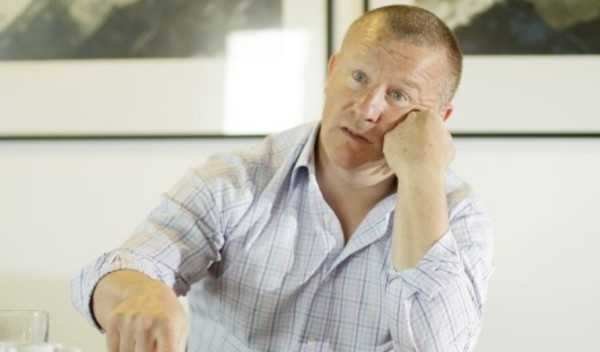

The fund manager attributed the rally to a short-term boost from the market believing that the pace of US interest rate rises would be slower in future.
This boosts equites because higher interest rates push bond yields up and make equities less attractive.
Mr Woodford’s £4.4bn Woodford Equity Income fund delivered a return of 3.5 per cent in January, compared with more than 5 per cent for the average fund in the IA UK All Companies sector.
The fund is in the top half of funds in its sector over the past six months.
In his latest update to investors in the fund, Mr Woodford wrote: "Equity markets enjoyed a robust start to the year, rebounding from December’s declines.
"Global macroeconomic data appeared to resonate more with the market behaviour at the end of last year, however, with weakness particularly evident in China and Europe, and growing concerns about the outlook for the US economy.
"Towards the end of the month, the Federal Reserve (Fed) responded to the deteriorating economic environment by signalling that it is pretty much done with interest rate hikes for now and intends to be more flexible about the pace of its balance sheet ‘normalisation’ through the process of quantitative tightening (QT).
"Although this evolution of Fed policy may have contributed to the near-term rally, the implications of a deteriorating backdrop are not positive for most risk assets from a longer-term fundamental perspective.
"Indeed, we expect the US to join the rest of the world in this more challenging economic environment, with very few regional economies possessing enough internal momentum to withstand the slowdown that is already in train. The UK economy is one of these rare exceptions."
Mr Woodford has long maintained that the UK economy would not be affected by Brexit, with his firm having compared any form of Brexit to the millennium bug, that is, a much hyped event that had no impact on people’s lives.
His stance has proved costly for investors in the fund, however, after it lost 6 per cent over the past three years compared with a 24 per cent gain for the sector average.
He said "most" economies in the world were too vulnerable to cope with higher US interest rates, but that the UK was an exception.
Mr Woodford added: "The UK economy entered 2019 with positive momentum and looks well placed to continue to strengthen as the year progresses.
"This will, in my view, contrast significantly with almost every other large developed economy, including China, where recent data has been worryingly weak.
"In Europe, the disappointing data we saw in the second half of 2018 is getting worse, Japan is not growing at all, and I believe the US economy will slow as the year progresses.
"The UK’s economic performance in 2019 will, in that context, stand out from most of its peers."
The view that quantitative easing has artificially inflated the global economy and will lead to a downturn as the policy is removed is not one that is universally held by investors.
David Miller, investment director at Quilter Cheviot, said QE’s impact on financial markets was similar to 'pouring water into a bucket with a hole in it'.
He said: "If you are trying to fix the bucket, while you are fixing it water will fall out, but if you pour water into the bucket as you are fixing it, the bucket never empties. Then when the bucket is fixed you don’t need to pour more water in.
"The global financial crisis caused a hole in the bucket, and QE is like water poured into it, but as the economy repairs, there isn’t a need for as much water."
Jonathan Davis, who runs Jonathan Davis Wealth Management in Hertford, said the notion that the global economy was on the brink of a sharp downturn was "nonsense".
He added: "The global economy is OK - not great at all but not recessionary.
"In the US we have not seen a quarter with falling corporate earnings since 2015. To that year we saw five in a row. We haven't recently seen one.
"China and US can - and need to - make up."
david.thorpe@ft.com



